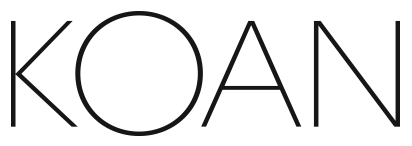Cities of Innovation: Leuven
Key indicators
ICT Infrastructure

Average broadband speed (Mbps)
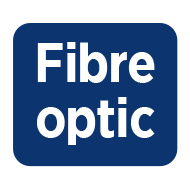
Network availability
Local, national and international transport links
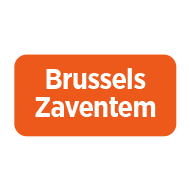
Local airport

Non-stop flight destinations (25.7 million passengers)
On the crossroad of E314 to Cologne and Brussels and N26 to Antwerp and Rotterdam Railway station on central train line no 36 Airport is 15 minutes away, connecting Leuven to 175 non- stop flights destinations
University links and access to talent

QS World University ranking (KU Leuven)

Main universities
— Research institutes include: · imec · Flanders Make · VIB — KU Leuven Association links university colleges across Flanders and Brussels with more than 100,000 students, exchanging expertise and pooling resources
Costs and availability of workspace

Co-working spaces
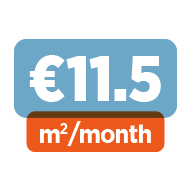
Average office rent
City support for start-ups and SMEs

Organisations

Leuven MindGate activities
Leuven MindGate was founded to position Leuven internationally as a top destination in Health, High-Tech and Creativity and participates in local, national and international projects
Leuven Mindgate overview
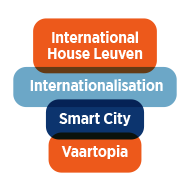
Leuven Mindgate projects

Leuven Mindgate task force
— Leuven MindGate has created six task forces, each with its own scope and goals. Each taskforce contains representatives from members and they are active in health, high-tech or creative companies, knowledge institutions or governmental institutions
Additional information
Local, national and international transport links
Brussels Zaventem airport is well- connected to the city.
Public transportation is by bus and shared bikes and cars. There is a circulation plan to limit city traffic to local car traffic.
University links and access to talent
Two main universities including: the State University of Leuven and the Catholic University of Leuven (KU Leuven), which is ranked 48th globally by Times Higher Education. Ranked as the most innovative university in Europe by Reuters.
KU Leuven Research & Development is instrumental as a Tech Transfer Office, founded in 1972. Other research institutes include: Flanders Make, and VIB (Flemish Institute for Biotechnology).
Associate KU Leuven links university colleges including KU Leuven, VIVES, UC Leuven- Limburg, Thomas More, Odisee, LUCA School of Arts. imec (research institute for nanotechnology and digital technology) is a world-class research institute.
Costs and availability of workspace
Co-working spaces include:
— Start it @ KBC Leuven
— SO the best of both worlds
— Heroes at work
— Louvain coworking space
— Schietstand ECOWERF
City support for start-ups and SMEs
Leuven MindGate was founded in 2016 when 29 leading knowledge institutions, companies and the city of Leuven joined forces to position Leuven internationally as a top destination in health, high-tech and creativity.
Additional information
The city was runner-up for the European Capital of innovation 2018 prize awarded by the EU Commission.
How to set up a business: a quickfire guide
What are my options?
The three most common types of companies in Belgium are: (1) a public limited liability company (in Dutch: “Naamloze vennootschap” / in French: “Société anonyme”) (hereafter: “NV/SA”); (2) a private limited liability company (in Dutch: “Besloten vennootschap met beperkte aansprakelijkheid” / in French: “Société privée à responsabilité limitée”) (hereafter: “BVBA/SPRL”); and (3) a cooperative company (in Dutch: “Coöperatieve vennootschap” / in French: “Société coopérative”) (hereafter: “CV/ SC”). Different levels of capital contribution are required depending on the type of vehicle chosen.
Public limited liability company
The NV/SA is usually chosen as the corporate form for large companies, but also for the establishment of some SMEs. It mainly focuses on the capital contribution of the shareholders, making it a company with a less familial nature. The liability of the shareholders is limited to their contribution.
This type of company must be established by at least two founders and must be incorporated by notarial deed. The share capital of the company should amount to at least €61,500, which has to be fully paid up at the time of incorporation.
Private limited liability company
The BVBA/SPRL is in principle incorporated by at least two founders. An exception is made for the one-person BVBA/SPRL. The BVBA/SPRL, like the NV/SA, must be incorporated by notarial deed.
The minimum share capital of a BVBA/SPRL amounts to €18,550, which has to be paid in to the amount of €6,200 in the situation where it is incorporated by two founders. The minimum share capital of a one-person BVBA/SPRL is €12,400 and this must be paid in at the time of incorporation.
Cooperative company
The CV/SC is a company whose shareholders work towards common objectives and share common values. The main characteristic of the CV/SC in Belgium is that it has a variable number of shareholders and a variable capital, alongside its fixed capital.
The constitution of the CV/SC always requires three founders. Failure to comply with this obligation may result in the nullity of the deed of incorporation. The other incorporation formalities depend on the type of CV/SC one would like to establish.
A CV/SC with limited liability must be incorporated by notarial deed. The articles of association for this type of company stipulate that there must a “fixed part” of the share capital, the amount of which must not be less than €18,550, and of which €6,200 must be fully paid in at the time of incorporation.
A CV/SC with unlimited liability on the other hand can be established by private agreement. The incorporation of a CV/SC with unlimited liability does not require a minimum capital. However, it is the responsibility of the founders to provide the company with sufficient funds to carry out its activities.
What do I need to set up a company?
Each of the above companies can be incorporated either via a contribution in cash or in kind.
Incorporation via a contribution in cash requires an address in Belgium for the registered office of the company. Furthermore, a business plan will have to be drafted containing detailed information about the financial situation of the company. The founders will also have to open a blocked bank account in the name of the company, where the capital of the company must be paid in.
In the event of a contribution in kind, the above requirements will be completed once the assets provided by the founders have been evaluated by an auditor, who is obliged to draft a report with an explanation of the valuation methods used. The founders of the company are obliged to draft a special report in which they must describe and evaluate the assets.
The setting up on any of the options above takes approximately 2 to 3 weeks, depending on certain formalities, such as the opening of the bank account in Belgium.
Tax rates
With the introduction of the Corporate Income Tax Reform Act (dd. December 25, 2017), the corporate income tax rate has been reduced from 33.99% to 29.58% for assessment years 2019 and 2020, and it will fall to 25% for 2021. The first €100,000 of taxable income of SMEs enjoys a lower tax rate of 20.4% (reduced to 20% from 2021) provided that certain conditions have been met.
Belgian corporate income tax is paid via advance tax payments. Companies not making such advance payments are subject to a surcharge.
Legal contact
Pierre Willemart and Elise Theys
Koan Law Firm
Ch. de la Hulpe 166 Terhulpsesteenweg B-1170 Brussels Belgium
